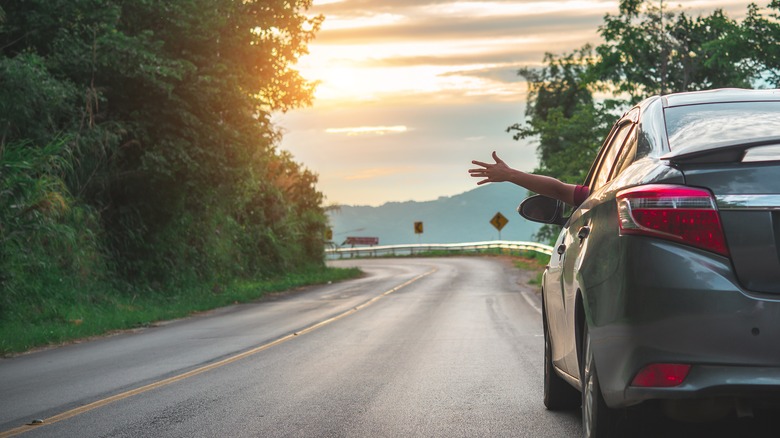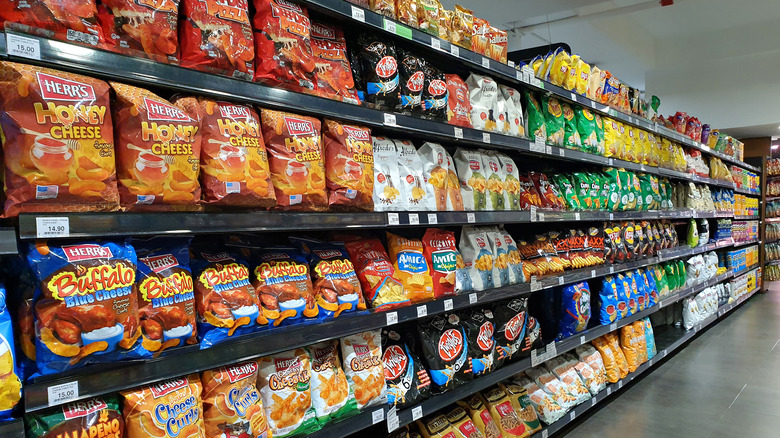PepsiCo's Survey Finds Americans Have Big Feelings About Road Trip Snacks
When we talk about the most American possible experiences, we mention things like apple pie and baseball, but somehow we leave out one of our most universal cultural experiences: road trips. The country is huge and obsessed with cars (and public transportation is lacking), so driving for hours from one place to another is something we've pretty much all experienced. And as anyone who has ever been on a long road trip can tell you, one of the integral parts of the endeavor is road trip snacks. Whether your particular taste is beef jerky, potato chips, or candy products, anyone stuck in a car for a long period of time knows that the presence of snacks vastly improves the experience.
So it's no surprise that Americans have some pretty strong opinions about road trip snacks, according to PepsiCo's customer surveys, published on May 24. And we're not just talking self-serving "people prefer our products" stuff from one of the foremost purveyors of said snacks. Some of these results are legitimately interesting so far as how Americans view road trip fare.
Not only are road snacks important, but they also influence how we relate to each other
The results are a lot more than simply "people love snack foods." First off, 85% of those surveyed said planning out snacks "greatly reduced the stress" of a long road trip, which isn't surprising. Neither is that 75% said they used road trips as a chance to try snacks they've never had before. And it's even more important for young people. Roughly twice as many people under 40 said finding good snacks was more crucial than finding clean bathrooms. It makes sense; a bathroom experience only lasts a few minutes, while snacks can stay with you for hours.
What's more interesting is just how much of an effect snacks have on our social interactions. A full 44% of respondents said they'd hidden snacks from other passengers during travel, which begs the question ... how? Who's paying so little attention that they can't see you chowing down on a Slim Jim from four feet away? One quarter, though, reported the opposite, saying they'd used snacks as a means to break awkward silences. Control was also a point of contention: 41% of respondents (including 49% of Millennials) said it was more important that they control the snack choices than the music.
What all of this seems to show is that snacks and food are how we relate to each other. If you're stuck on a long car trip with someone else, you can't overlook snacks' importance.

